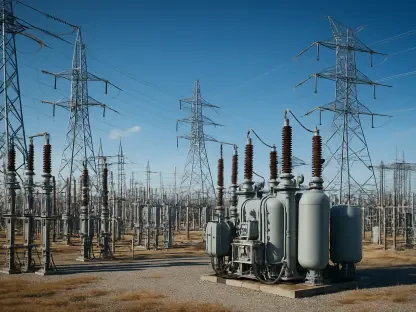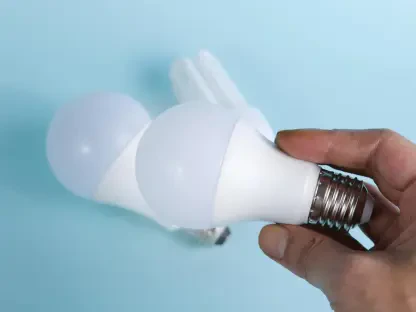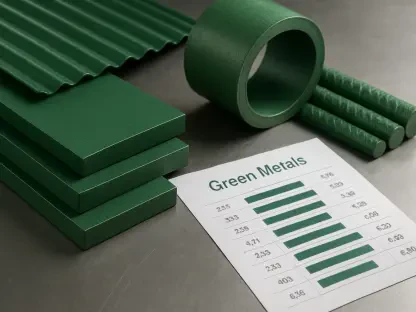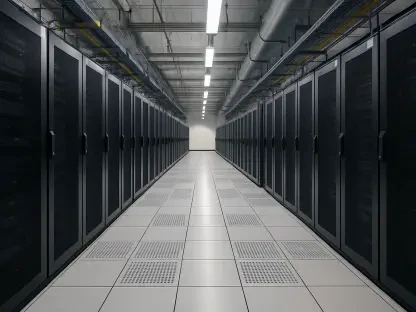Environmental policy and waste management have long sought innovative solutions to reduce landfill reliance and enhance recycling practices. Today, we speak with Christopher Hailstone, a seasoned expert in energy management and utilities, who will shed light on Governor Andy Beshear’s recent announcement of $6.2 million in recycling grants, aimed at transforming waste management in Kentucky.
Can you provide an overview of the $6.2 million in grants recently announced by Kentucky Governor Andy Beshear?
Governor Andy Beshear unveiled $6.2 million in grants dedicated to seventy projects throughout Kentucky. These initiatives are strategically designed to bolster recycling efforts, diminish landfill reliance, and enhance the management of household hazardous waste. By allocating funds to specific aspects of waste management, the program aims to foster sustainable practices across the state.
What types of projects are being supported with these recycling grants?
The grants support a diverse range of projects focused on recycling infrastructure, composting, and the safe disposal of household hazardous waste. By providing counties with the resources necessary to purchase specialized equipment, these projects aim to promote effective waste management solutions and sustainable regional recycling networks across Kentucky.
How many recycling grants were awarded and what is the total funding allocated for these grants?
Twenty-eight recycling grants were awarded, with a total allocation exceeding $3.8 million. This significant investment is intended to equip counties with the tools needed to enhance recycling capabilities, thereby reducing the environmental footprint and cultivating eco-friendly practices.
What specific purposes do the recycling grants support in Kentucky?
The recycling grants primarily focus on purchasing equipment to enhance the efficiency and scope of recycling operations. By investing in infrastructure, these funds aim to strengthen the regional recycling systems, thereby enabling counties to effectively manage and redirect waste from landfills.
Could you explain the role of composting grants in this initiative?
Composting grants are integral to this initiative as they encourage creative solutions for managing organic waste, such as food and lawn materials. By funding equipment purchases, these grants seek to enhance the composting capabilities of counties, contributing to overall waste reduction and landfill diversion.
How much funding has been allocated specifically for composting grants and how many projects are being supported?
The initiative includes nine composting grants, collectively amounting to $1.25 million. Each grant is intended to support projects that can innovatively handle organic waste, underscoring the state’s commitment to sustainable waste management practices.
What kind of equipment purchases are being supported by the composting grants to manage waste?
The composting grants facilitate the acquisition of equipment designed for efficient compost production, which includes machinery to handle input materials like food scraps and yard waste. This investment in technology ensures that counties can process organic waste more effectively and reduce landfill contributions.
What are household hazardous waste grants, and how do they benefit local communities?
Household hazardous waste grants fund initiatives that allow counties to host regular drop-off events for residents. These events provide safe disposal options for household chemicals, electronics, and other hazardous items, preventing environmental contamination and supporting community health.
How many household hazardous waste grants were awarded, and what is the total funding allocated for them?
Thirty-three household hazardous waste grants were awarded, totaling over $1 million. This funding specifically supports counties in organizing disposal events that enable residents to safely discard hazardous household waste, thereby protecting local ecosystems and community well-being.
Why do you believe it’s important to handle household hazardous waste separately from regular waste?
Household hazardous waste can lead to significant environmental issues if not handled correctly. Separating these materials from regular waste streams prevents harmful substances from contaminating soil and water resources, ensuring safer disposal processes and protecting both public health and environmental integrity.
Governor Beshear mentioned that these projects will “limit our contribution to landfills.” Can you elaborate on how these grants will achieve that?
Through enabling efficient recycling, composting, and hazardous waste disposal, these grants directly reduce the quantity of waste sent to landfills. By improving local infrastructure and providing communities with sustainable waste management solutions, the initiative fosters a responsible approach to waste that significantly curtails landfill contributions.
What kind of local contributions are required from those who receive the grants?
Grant recipients are required to offer a 25 percent local match, which can come in the form of cash or “in-kind” contributions. In-kind contributions might include educational activities, advertising to promote the program, or labor to support the initiative, demonstrating community commitment to the grant objectives.
Are there any particular criteria or requirements for grant applications?
Applicants must submit a comprehensive application with supportive documentation by the specified deadline. This includes a demonstration of their ability to provide the 25 percent local match and plans for effectively utilizing the grant to achieve sustainable waste management goals.
Could you explain what an “in-kind” labor contribution might involve for a local county?
An “in-kind” labor contribution typically involves using local workforce efforts to support the implementation of the grant project, such as organizing educational workshops or facilitating county-wide waste management initiatives, thus fostering community involvement and shared responsibility.
Is there a particular area within Kentucky that you anticipate will benefit most from these grants?
While the grants aim to benefit the entire state, areas with higher waste production rates or existing environmental challenges might find the most immediate advantages. The grants focus on empowering counties with bespoke solutions tailored to their specific needs, ensuring widespread impact.
How do these current initiatives align with Kentucky’s long-term environmental goals?
These initiatives are foundational for Kentucky’s long-term environmental strategy, focusing on reducing landfill dependency and promoting recycling and waste reduction. By nurturing sustainable practices statewide, these grants contribute to a cleaner, greener Kentucky that aligns with broader ecological objectives.
What challenges do you foresee in the implementation of these projects?
Some challenges may involve ensuring community engagement and consistent participation in recycling and composting efforts. Additionally, counties must manage logistics effectively to host successful hazardous waste events while meeting match requirements and cultivating ongoing community support.
Have there been any success stories or remarkable outcomes from previous recipients of similar grants?
Previous grant recipients have seen significant improvements in recycling rates and landfill diversion, alongside increased public engagement in sustainable waste practices. These positive outcomes demonstrate the tangible benefits of these investments in enhancing local environmental stewardship.
What impact do you hope these grants will have on the local communities in Kentucky over the long term?
Ultimately, these grants will inspire lasting change in local communities by reducing landfill dependency, strengthening sustainable waste practices, and building a healthier environment. My hope is these projects pave the way for an eco-conscious Kentucky that prioritizes environmental health for future generations.









